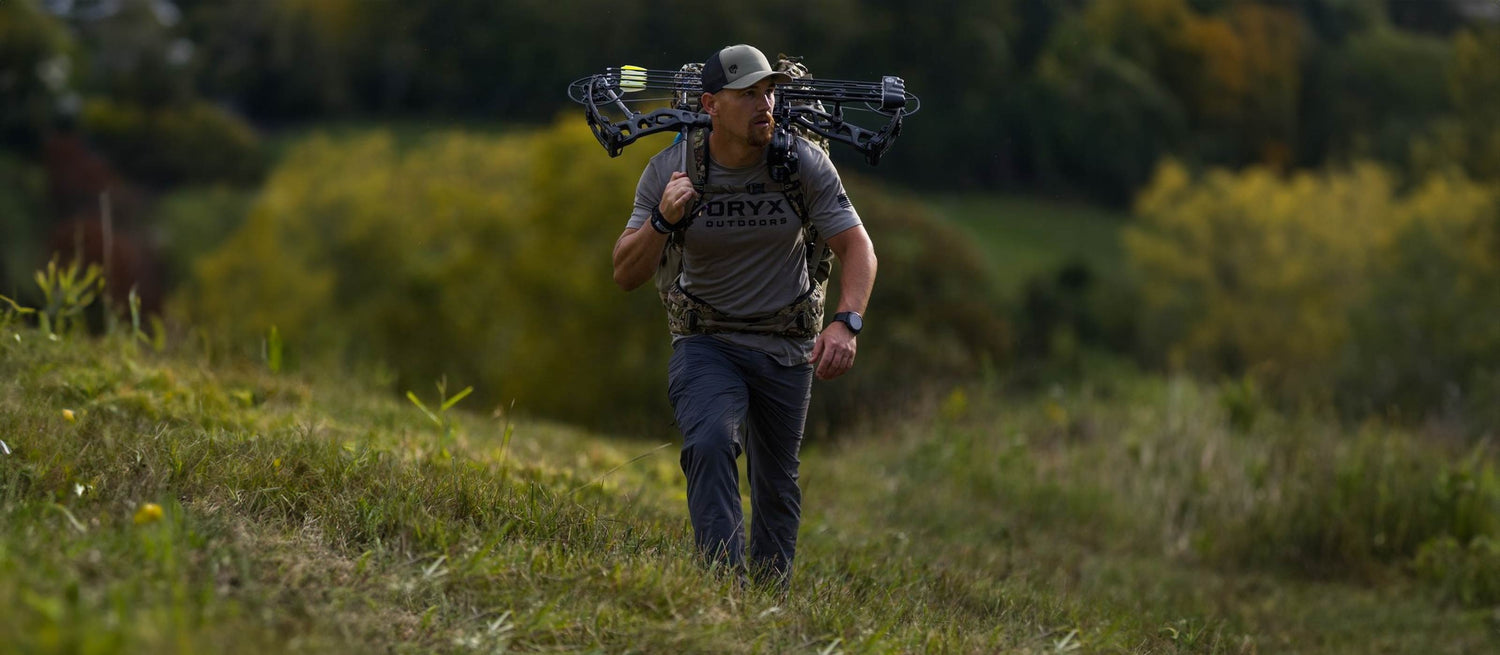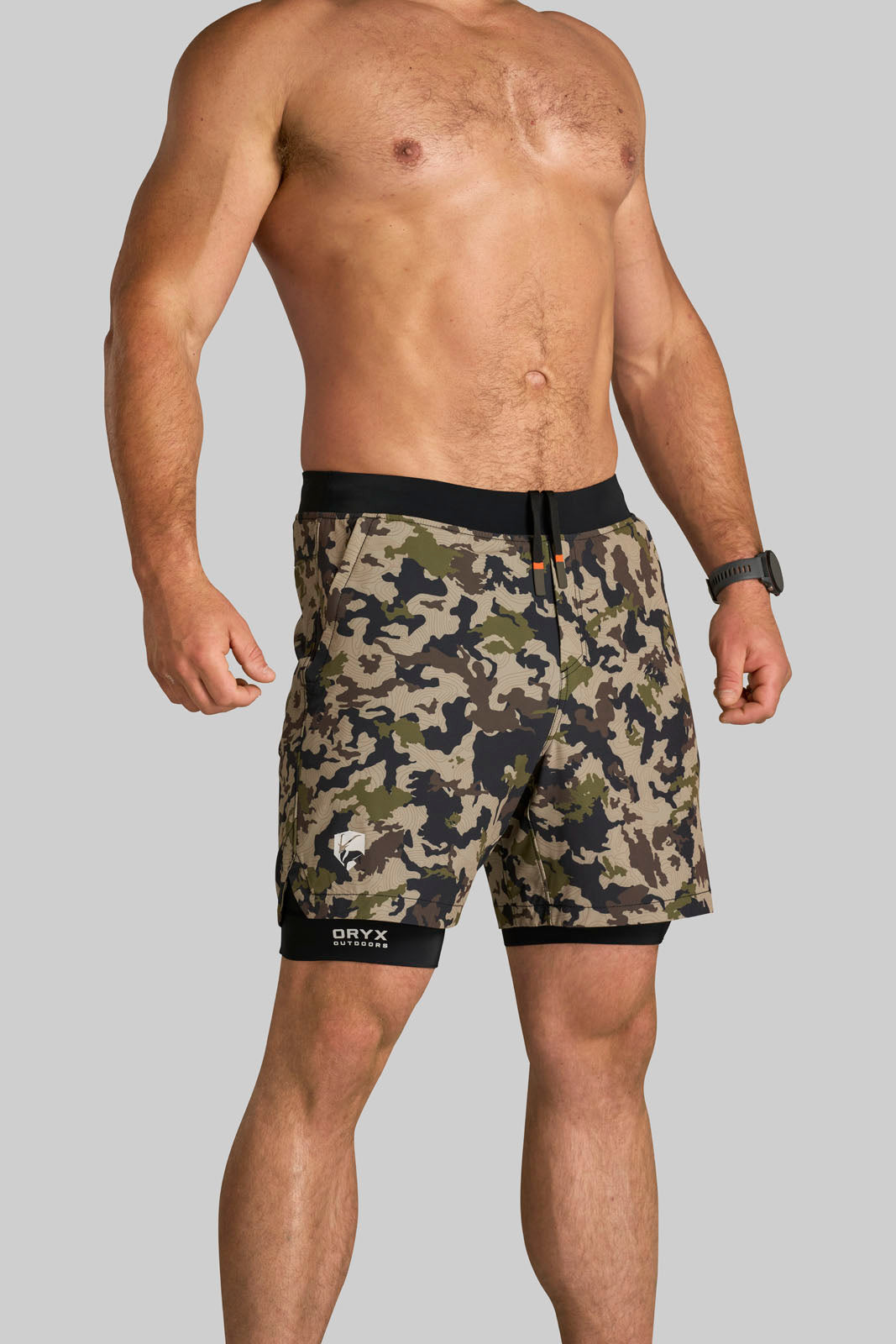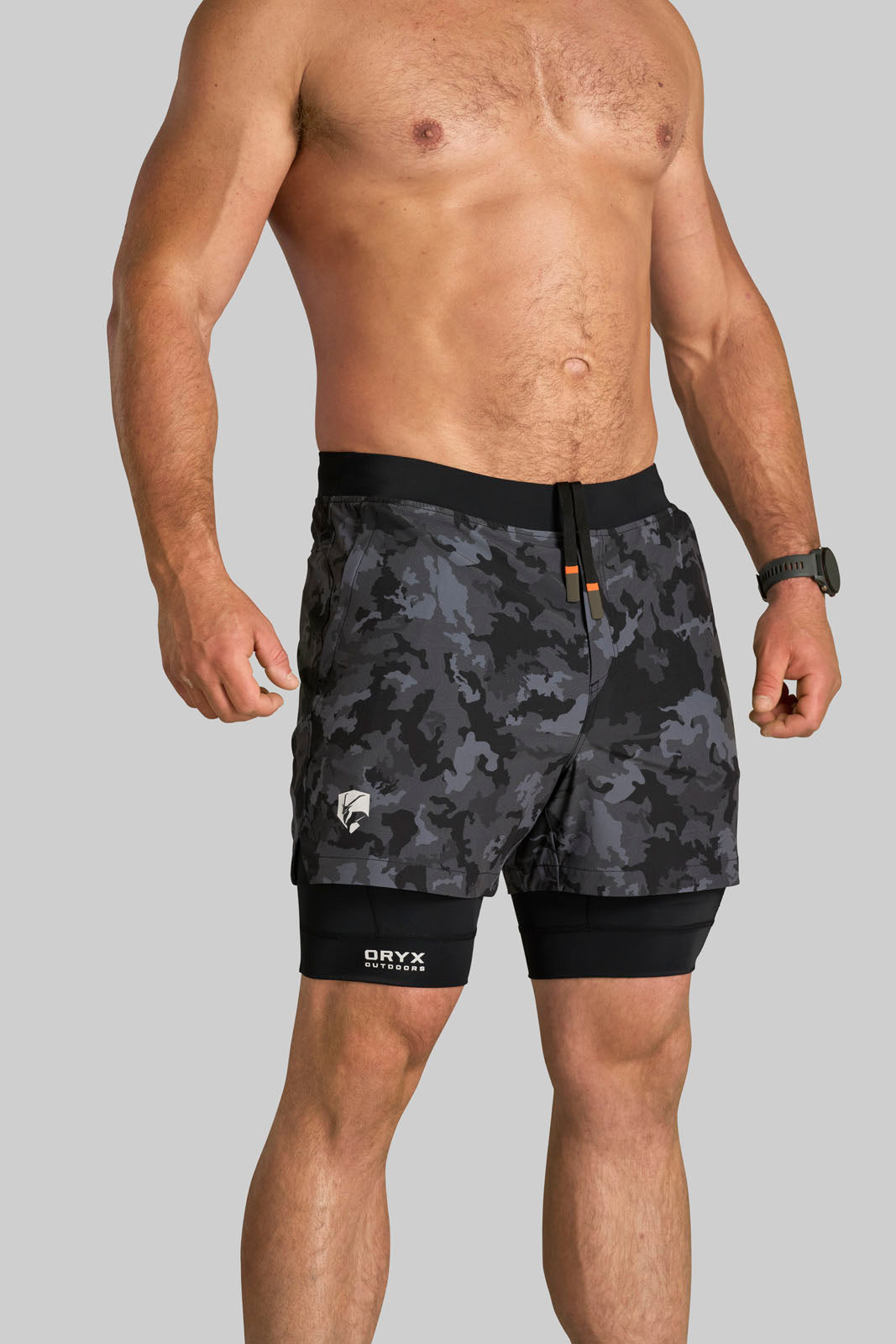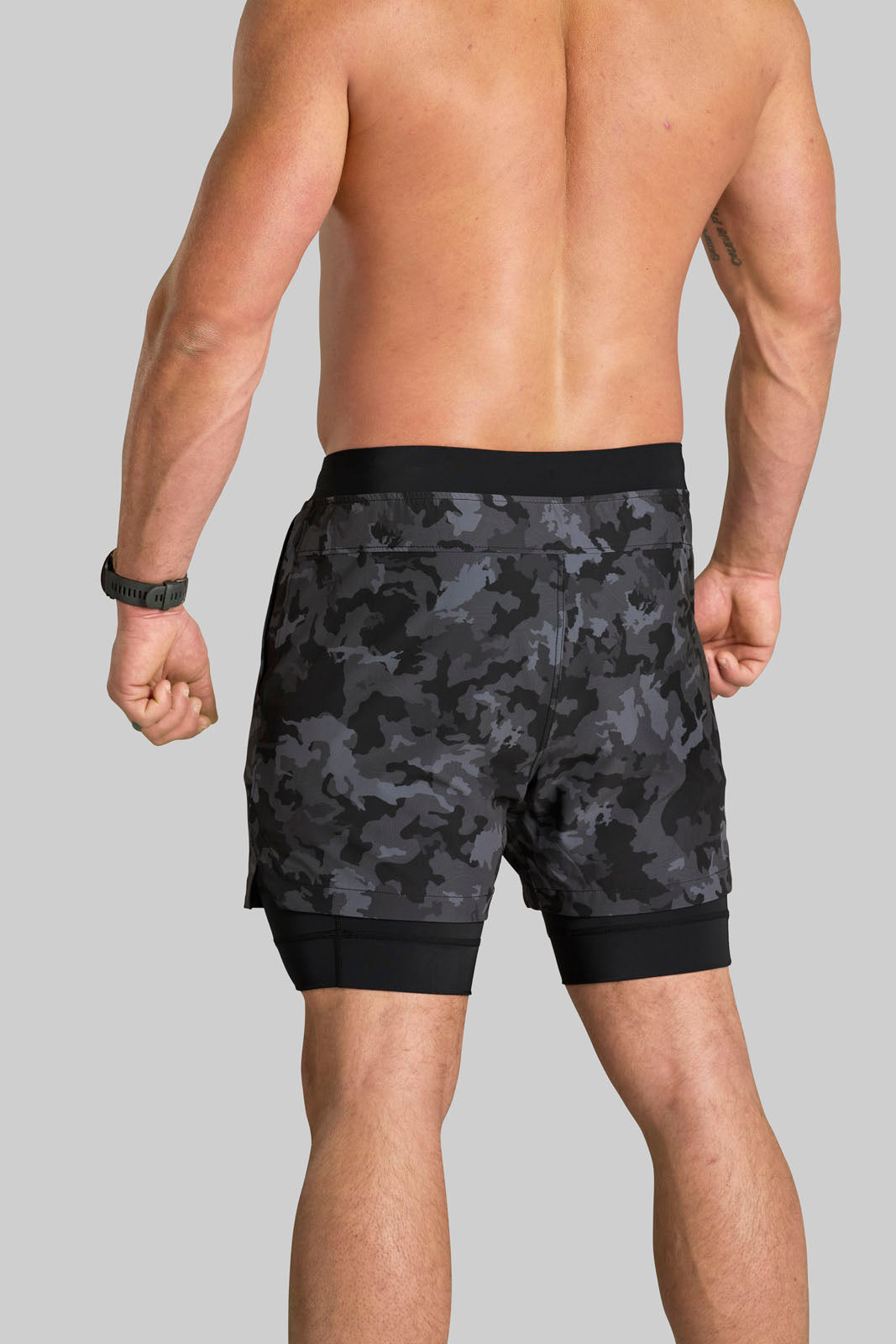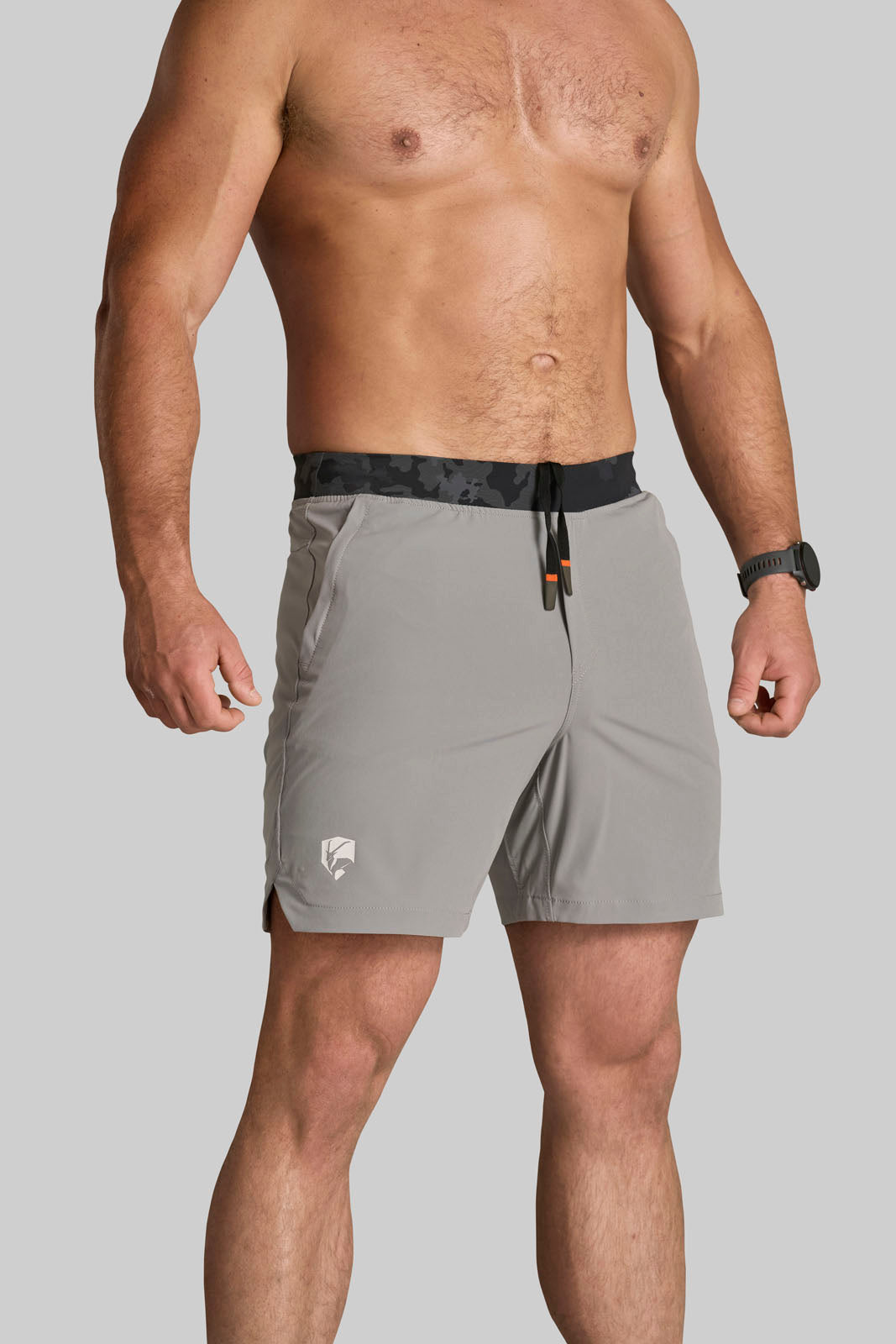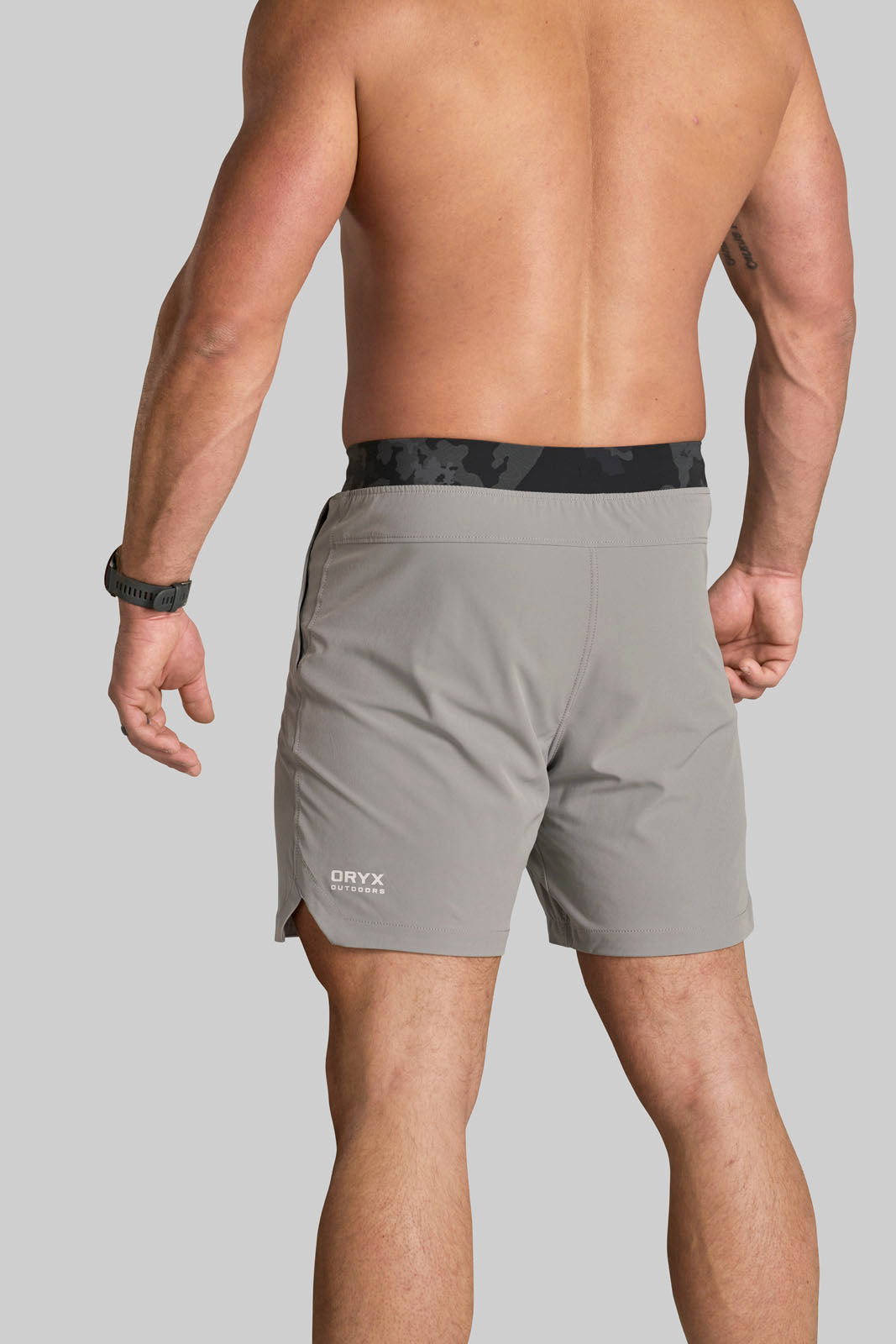Fueling the Pursuit in the Backcountry
When you’re miles deep in elk country or glassing ridges for mule deer, every ounce in your pack matters. The difference between a smart food system and a poor one is the difference between staying sharp or crashing halfway through the day.
Hunters need food that is lightweight, nutrient-dense, and easy to prepare. Calories are king, but not all calories are equal. You need fuel that sustains energy, keeps muscles firing, and supports recovery when the mountain chews you up.
At Oryx Outdoors, we believe in training for the hunt and fueling for it with the same intensity. This grocery list isn’t about luxury—it’s about performance. These are the foods that will keep you Always in Pursuit without weighing your pack down.
The Backcountry Food Priorities
Before you start filling your pack, keep these priorities in mind:
-
- Calorie Density – More calories per ounce means more energy for less pack weight.
- Protein Content – Critical for muscle repair after long hikes, climbs, and pack-outs.
- Carbohydrates – The body’s most efficient source of energy for sustained movement.
- Healthy Fats – High-calorie fuel that keeps you full and balances hormones.
- Shelf Stability – Food must last without refrigeration in unpredictable backcountry conditions.
- Ease of Prep – Meals and snacks should be quick to make—even in the dark or the rain.
Proteins: The Backbone of Recovery
Protein keeps your muscles strong and reduces breakdown after long days. Without it, recovery suffers.
-
- Jerky (Elk, Venison, Beef, Turkey): Lightweight, high-protein, and a nod to the hunt itself.
- Protein Bars: Aim for 15–20g protein per bar; choose low-sugar options.
- Powdered Protein: Whey, isolate, or beef-based powders mixed with water or powdered milk.
- Freeze-Dried Eggs or Meat Pouches: Great for breakfast or hearty dinners.
- Tuna or Salmon Packets: Lightweight pouches provide protein and omega-3s.
Carbohydrates: The Energy Workhorse
Carbs are your body’s preferred energy source for climbing ridges and covering miles. You’ll burn through them faster than you think.
-
- Instant Oats: Lightweight, quick to make, customizable with peanut butter or protein powder.
- Rice Cakes: Perfect for mid-day snacking with nut butter.
- Instant Rice or Pasta Packets: Quick-cook carbs for dinner at camp.
- Dried Fruit: Portable, lightweight sugars for fast energy.
- Trail Mix with Carbs + Protein: Combine oats, dried fruit, and nuts for a balance of energy.
Fats: The Lightweight Calorie Booster
Fats pack more than twice the calories per gram compared to carbs or protein, making them invaluable in the backcountry.
-
- Nut Butters (Peanut, Almond, Cashew): Single-serve packets are convenient and calorie dense.
- Nuts & Seeds: High-fat trail mix staples like almonds, walnuts, cashews, sunflower seeds.
- Olive Oil Packets: Add to rice or pasta for extra calories.
- Dark Chocolate: Doubles as an energy boost and morale booster.
Electrolytes & Hydration: The Hidden Key
Dehydration and electrolyte imbalance are silent killers of performance. Water alone isn’t enough.
-
- Electrolyte Packets: Single-serve mixes like LMNT, Liquid I.V., or Wilderness Athlete.
- Powdered Drink Mixes: Add flavor and keep you drinking consistently.
- Instant Coffee or Tea Bags: Morning ritual + caffeine boost.
Complete Meals: Dinner in the Backcountry
After a day of climbing and glassing, nothing beats a warm meal. Freeze-dried and dehydrated options are lightweight and calorie-dense.
-
- Freeze-Dried Meals (Peak Refuel, Mountain House): 500–800 calories per pouch, just add hot water.
- DIY Backcountry Meals: Prep venison chili, rice, or pasta at home, vacuum-seal, and rehydrate in camp.
- Ramen with Add-Ins: Cheap, lightweight, and better when boosted with jerky, olive oil, or peanut butter.
Example Backcountry Grocery List (3 Days, 1 Hunter)
Breakfasts:
-
- Instant oats + protein powder + peanut butter packet (x3)
- Instant coffee packets (x3)
Snacks:
-
- Jerky (12 oz total)
- Protein bars (6–9 bars total)
- Trail mix (1 lb bag)
- Dried fruit (½ lb bag)
- Rice cakes + nut butter packets (6–9)
Lunch/Dinner:
-
- Freeze-dried meals (3–4 pouches)
- Instant rice + tuna packets + olive oil (2 meals)
- Ramen noodles + jerky add-in (1–2 meals)
Hydration:
-
- Electrolyte packets (9–12)
- Drink mixes (3–5)
Total Calories: ~3,000–3,500 per day, depending on portion sizes.
Packing Strategy: Food Weight & Space
Every ounce counts. Here’s how to keep your load efficient:
-
- Use Vacuum Seal Bags: Compress homemade meals and snacks.
- Go Single-Serve: Nut butter packets, olive oil packets, and electrolyte packs beat bulky jars or tubs.
- Pack Per Day: Organize daily rations into gallon Ziplocs—grab and go each morning.
- Balance Weight: Store food evenly in your pack to avoid shoulder strain.
Common Mistakes Hunters Make with Food
-
- Too Much Weight: Overpacking heavy cans or fresh food that spoils quickly.
- Not Enough Protein: Skimping on recovery fuel leads to fatigue mid-hunt.
- Ignoring Electrolytes: Water alone doesn’t cut it—cramps will ruin your day.
- Low-Calorie Foods: Granola bars with 100 calories aren’t enough for hunters burning 3,000+ per day.
How Training and Meal Prep Tie Together
Your grocery list isn’t just for the backcountry—it should reflect your training lifestyle. The same principles apply:
-
- Meal prep Sundays ensure your fridge is stocked with protein and carbs for training.
- Packable snacks like jerky and rice cakes double as gym fuel and field fuel.
- Consistency in nutrition means no surprises when you’re deep in elk country.
Food as Part of the Pursuit
Your weapon, your boots, your pack—these are all critical pieces of gear. But food is gear too. The wrong choices weigh you down, slow your pursuit, and steal your edge. The right grocery list fuels miles, powers climbs, and helps you shoulder the weight of success on the way out.
Every backcountry hunter knows the grind. Every hunter-athlete knows the importance of fuel. Put them together, and your food system becomes a weapon in itself.
Be intentional. Pack smart. Stay fueled. Because in the backcountry, food isn’t comfort—it’s survival.


